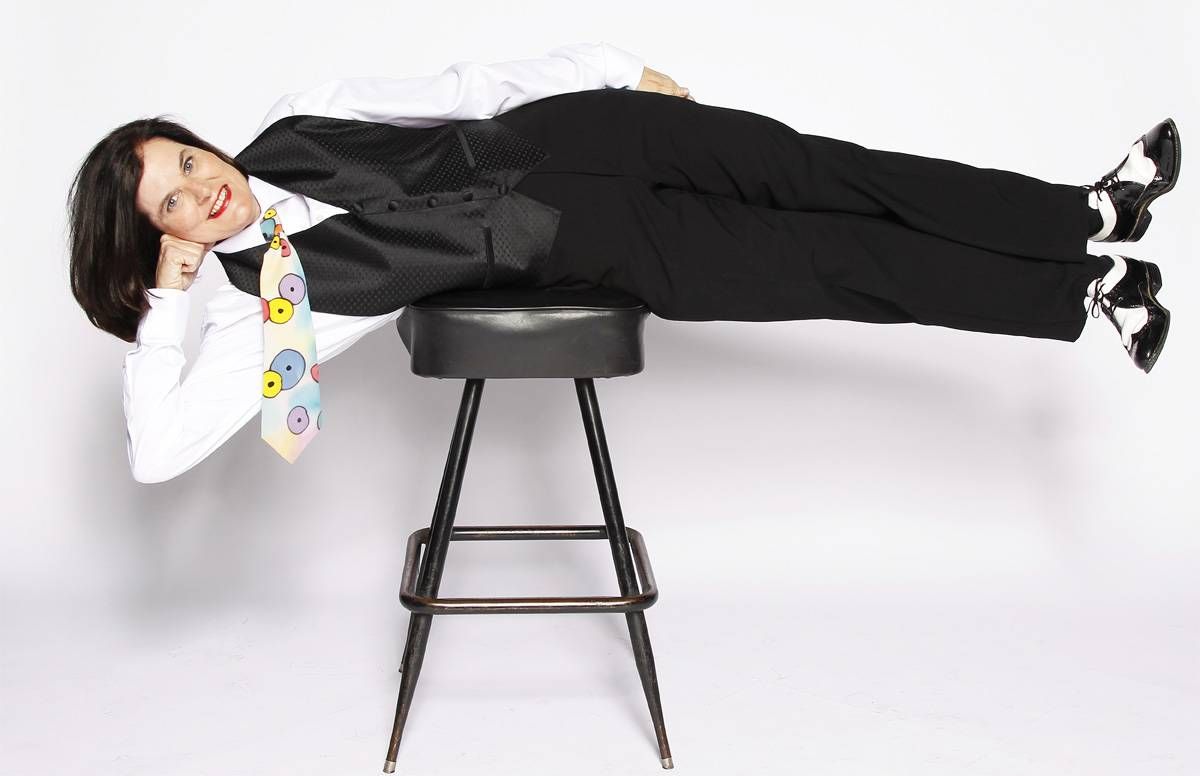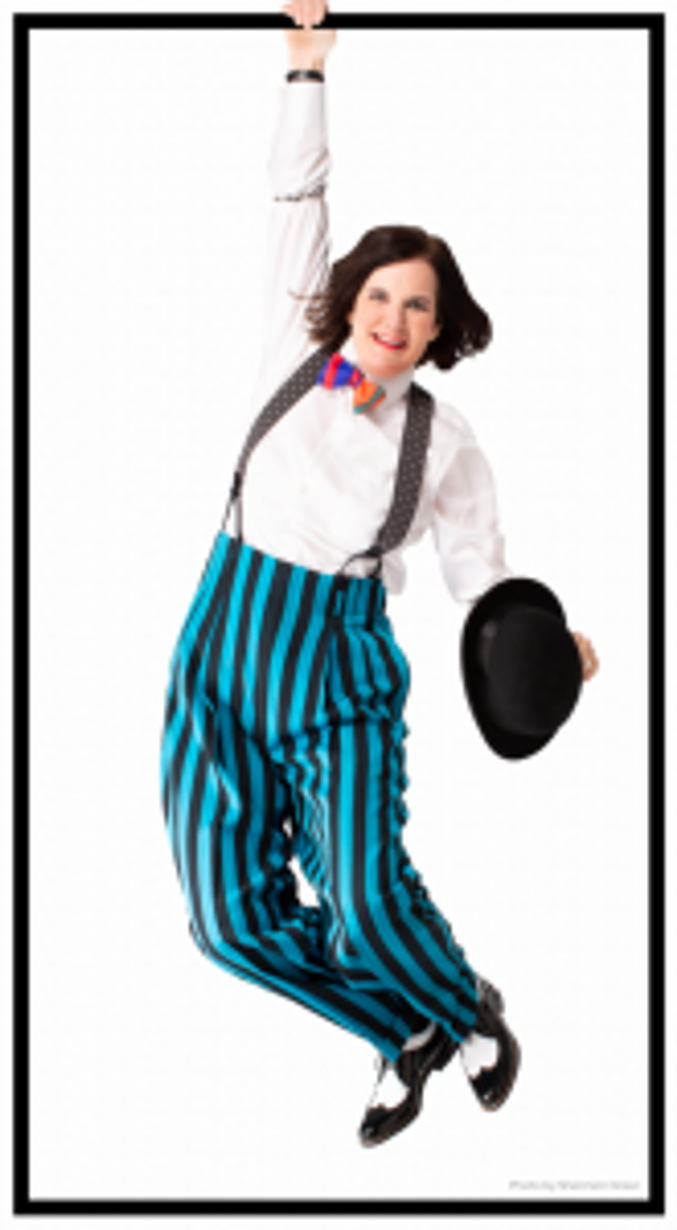Humor in the Time of COVID-19
Experts, like Paula Poundstone, say jokes are okay when times are rough
More than 15 years ago, my mom had terminal cancer. It was, without a doubt, the most devastating time in my life. For seven months until she passed, I dealt with much sadness and anger, though I tried to keep that from her. But I also laughed a lot.

Don't get me wrong; I certainly wasn't laughing about the situation. Not even close. But we had always been a funny duo. As an only child who lost my dad when I was just 10, I often looked for humor. My mom did too.
One morning, when her oncologist came to her hospital room, he asked, "How are you today?"
My mom, in her typical joking tone, replied, "I'm sassy!"
The doctor wrote in her chart: patient is alert, has good vitals and is sassy!
We spent most of the day watching the other health care workers look at her chart and try to stifle a laugh. "It's okay," we'd say. "We know she's sassy today."
With the world as it is now — fighting a pandemic, quarantine, political hostility, protests, riots, climate change…I could go on and on — is it appropriate to have humor and laughter?
Laughter as the Best Medicine
"Humor is healthy for you; that's why we need it now. It's definitely a coping mechanism and an important part of both mental and physical health," says Paula Poundstone, comedian and host of the podcast "Nobody Listens to Paula Poundstone" and the game show on YouTube, "Nobody Asked You starring Paula Poundstone," as well as a panelist on NPR's "Wait Wait…Don't Tell Me! " And, she says, "The other reason is it's fun!"
Poundstone is right that laughter helps our mental health a great deal — especially during rough times.
"Humor might be all we have to pull us out of the darkness," says Stephanie Newman, psychologist and author of "Barbarians at the PTA." She adds: "It brings perspective and distance from the dread and gloom."
"The reality is that people need humor all the time. Humor, and the laughter it inspires, is our built-in mechanism for managing stress. It provides relief when times are tough, improves our mood and helps the mind and body calm down," says Brian King, psychologist, public speaker, comedian, and author of "The Art of Taking it Easy: How to Cope with Bears, Traffic, and the Rest of Life's Stressors."
Our Commitment to Covering the Coronavirus
We are committed to reliable reporting on the risks of the coronavirus and steps you can take to benefit you, your loved ones and others in your community. Read Next Avenue's Coronavirus Coverage.
But the act of laughing itself actually changes what's happening inside us.
"Humor might be all we have to pull us out of the darkness."
"The primary benefit we receive from laughing is lower levels of stress hormones. When we are stressed, our bodies start cranking out a hormone called cortisol and most of our physiological reaction to stress is brought about by this hormone–increased cortisol which makes our heart start beating faster, our blood pump faster, our blood sugar increase, our stomach tense and more. Depending on the context, our brain may interpret these changes as being angry or sad or scared or nervous as a result," King explains. "Humor, laughter in particular, significantly reduces the presence of cortisol and therefore reduces the physical effects of stress, which in turn brings our emotional state back to a calm condition."
The Pandemic Productions of Paula Poundstone
With everything she does professionally now virtual, including her podcast, Poundstone says that the use of technology has brought its own kind of humor.

"We're doing it from our homes. Sometimes we'll record, and it'll turn out that one of us didn't record right. It's stressful, it's aggravating, and I'm not a technical person. The last thing I want to be doing is pushing a bunch of buttons. There are times that my partners and I are on a conference call and get laughing so hard about this." she says. "And there's such a relief there. I probably have laughed until I've cried more in the last six months than in the rest of my life."
Regarding her game show, Poundstone says she finds humor in it and makes jokes while talking with the contestants. During a debrief, though, someone involved with the show said that people might find it confusing in terms of who's winning.
"No one gives a sh*t who's winning," laughs Poundstone. "It's just a thing to hang your hat on so that we can hang for a while and make jokes. It has nothing to do with who wins the game."
Since her work does involve jokes, Poundstone is still working on funny stuff. She writes all her own material and gets a lot of ideas while walking her two big dogs. Armed with a pen clipped to the front of her pants and a small notebook in her back pocket, Poundstone walks and thinks.
"I'll be walking the dogs somewhere, and I think I have a really good idea. So I have to stop my walk and write it down. I spend a lot of time looking at the world. I'm always thinking. It's like my brain has a Roomba in it," jokes Poundstone. "Some of my dog walks are longer than the dogs want. I'll say, 'We got to keep going, guys. I haven't thought of any ideas yet. We've got to go a few more blocks.'"
"I truly would rather laugh than cry right now."
Poundstone has her go-to's that make her laugh: Bob and Ray, the late legendary comedy duo who started on radio and then did TV.
"I'm not proud of this, but I almost got in a wreck once because I was listening to them in my car, and I was just about to make a turn," jokes Poundstone. "They're just sheer joy."
She loves to watch episodes of "The Dick Van Dyke Show." And she rereads the children's book about a mouse, "Stuart Little."
"Stuart was born to a woman, but no one ever acts like it's weird to have her have birthed him or to have a mouse as a son. No kids seem put off by the fact that he's a mouse. No one says, 'Hey — He's a mouse!'" says Poundstone, laughing.
During the pandemic, Poundstone has also created funny videos on her website. Besides keeping her busy, they also made her laugh.
She says, "I truly would rather laugh than cry right now."
Where to Find the Funny
In addition to rewatching your favorite sitcoms, reading humor books or listening to funny podcasts, you can find humor online. On YouTube, you can watch comedian Jim Gaffigan and "Dinner with the Gaffigans" — where he and his family filmed their nightly dinners during the pandemic.
Comedian Wendy Liebman has posted daily videos for nearly 200 days on her Facebook page and on Instagram.
Another funny person to look up is writer/director Paul Feig and his "Quarantine Cocktail Time," also on Instagram; he teaches you to make drinks, but is also hilarious.
Or you can check out me, the author of this piece, on WojosWorld.


